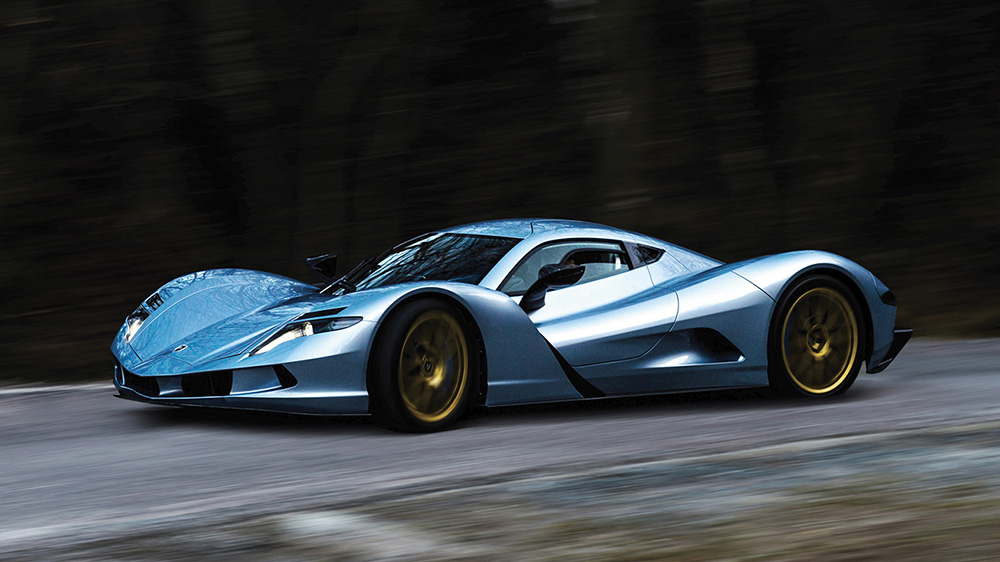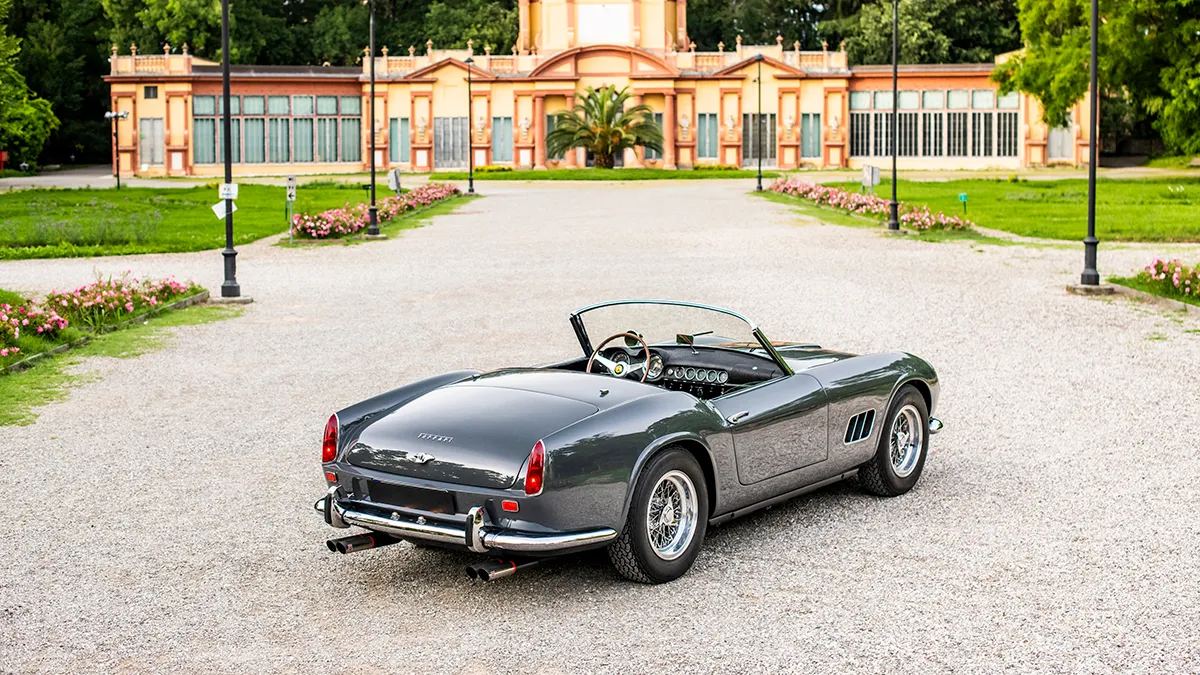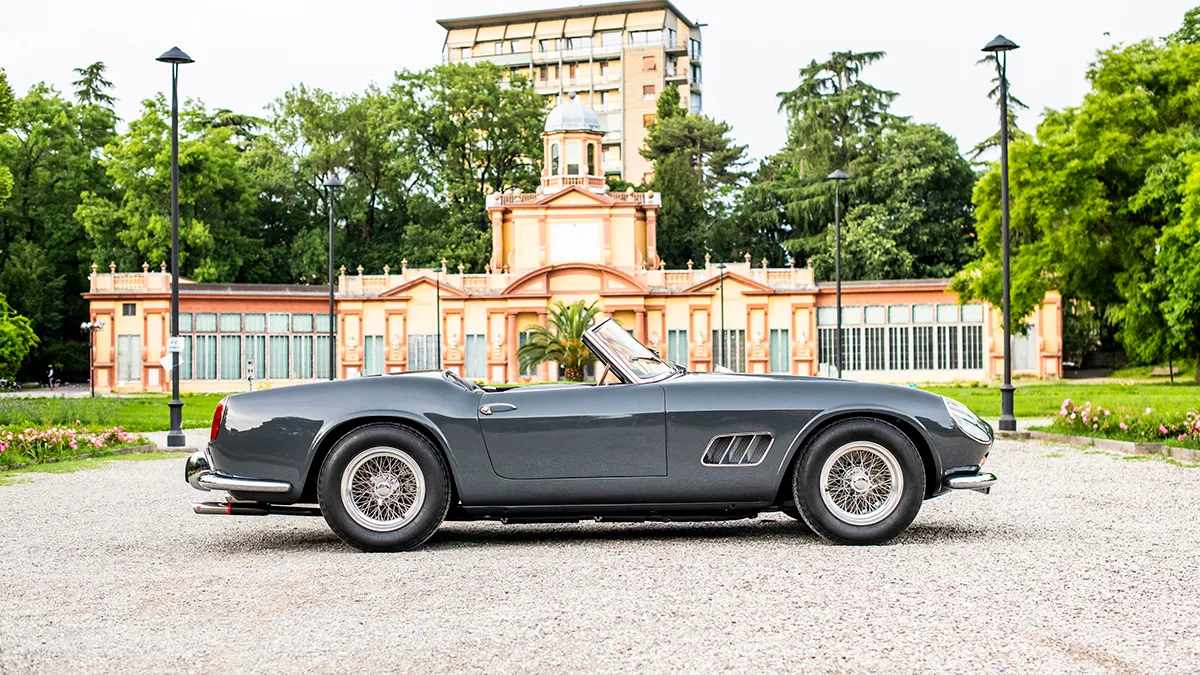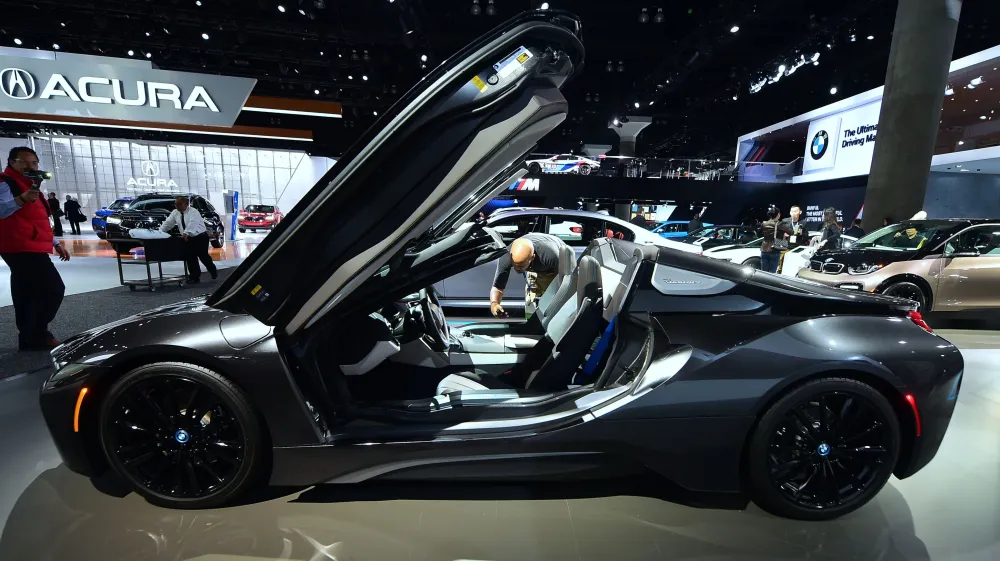
The 18 Most Exciting New EVs Hitting The Roads
Between now and 2025, dozens of all-electric coupes, sedans, SUVs and hypercars will hit the market.
Related articles
There’s no denying it – the electric revolution is here.
It may have taken a while—and probably longer than it should have—but the last couple of years have seen a seismic shift in the automotive landscape.
Essentially every major brand, luxury marque and supercar specialist has committed to making fully electric cars.
What’s even more surprising is how quickly these cars will be arriving. Between now and 2025, dozens of electrified coupes, sedans, crossovers, SUVs and hypercars are scheduled to hit the market. From the GMC Hummer EV to the Mercedes-Benz EQS and the Lotus Evija, here are 18 battery-powered vehicles that we can’t wait to see on the road in the next four years.
Aspark Owl (2021)

Aspark Owl Aspark
Audi e-tron GT (2021)

Audi e-tron GT Audi
The Volkswagen Group has made very clear over the last few years that it’s focused on electrification. This is true of all its brands, including luxury marque Audi. Like its German peers, BMW and Mercedes-Benz, the brand has already launched a dedicated battery-powered line, called e-tron. The first vehicle, an SUV, arrived in 2018, but we will soon see the arrival of the company’s most exciting EV, the e-tron GT. The approx $190,000 grand tourer will feature everything enthusiasts have come to expect of the beloved A7 sedan—only without the emissions. And if the EV’s 350kW and 630Nm of twist aren’t enough for you, don’t worry, because an RS variant is on the way.
Bentley Electric SUV (2025)

Bentley Bentayga plug-in hybrid Bentley
Details are still scarce, but Volkswagen Group’s most luxurious brand, Bentley, will be getting an EV of its very own before the midway point of the decade. This isn’t just some vague promise, either, but a pledge from none other than the marque’s CEO, Adrian Hallmark. In the autumn of 2021, the exec promised there would be a battery-powered Bentley ready to go by 2025. It still remains to be seen whether that vehicle will be completely new or based on a pre-existing model, but don’t be surprised if it’s an SUV like the incredibly popular Bentayga, which already has its own hybrid variant (pictured above). As Hallmark said, “If you’re not in SUVs, you’re nowhere.”
BMW i4 (2021)

BMW i4 concept BMW
BMW’s history with electric vehicles goes back further than most automakers. In addition to a slew of hybrids, the company released two fully electric vehicles last decade—the ultra-compact i3 and sporty i8. It’s taking things to a new level with its new i-Series models, though. The line will include battery-powered versions of some of the brand’s most popular models, including the X crossover and, most notably, a 4-Series sedan. The i4, which will be the line’s flagship, delivers 395kW, 482km of range and the M4’s massive kidney grilles. As of writing, prices were not available, but the exciting EV is expected to go into production later this year.
Bollinger B1 and B2 (2022)

Bollinger Motors
Back before the new Hummer was announced, the Bollinger EV seemed like the perfect option for those looking for a hulking, battery-powered utility vehicle. But just because a legit Hummer EV is on the way doesn’t make the start-up’s debut offering any less intriguing. Available as either a spacious SUV (the B1) or a boxy truck (the B2) with an extended bed, the company’s EV is perfect for those looking for a zero-emission vehicle with striking, retro looks. Its numbers sound pretty good, too, as Bollinger expects its electric powertrain to produce 457kW and 900Nm of torque, with a serviceable range of 320km per charge. A firm release date has yet to be announced, but the company is taking reservations for the approx. $162,000 EV now.
Estrema Fulminea (2023)

Estrema Fulminea Photo: Courtesy of Automobili Estrema.
Automobili Estrema—yes, the Italian word for “extreme”—isn’t taking the easy way out. The new Italian marque wasn’t content to just develop a supercar for its first vehicle; it decided to make one with a fully electric powertrain. Dubbed the Fulminea, the sporty coupe certainly looks the part thanks to a sleek and aerodynamic exterior that includes a rear wing with an integrated shark fin. It should be able to deliver the performance expected of its V-12-packing peers, too, thanks to an innovative quad-motor powertrain that will deliver an eye-popping 1521kW. Thanks to this, Estrema expects the car to be able to accelerate from zero to 320km/h in less than 10 seconds. Oh, and it will be able to drive a solid 520km on a single charge.
Ferrari Unnamed EV (2025)

Ferrari SF90 Spider Ferrari
Not all automakers have embraced electrification as quickly as others. This is especially true of Ferrari. Though the company has achieved great results with hybrids—the SF90 Stradale (pictured above) is its most powerful vehicle—the Italian automaker has been decidedly fuzzy about when we could expect to see a Ferrari EV, if ever. Finally, earlier this year, chairman John Elkann, said we should expect the marque’s first entirely battery-powered vehicle by the middle of the decade. Will it be a sports car? Or maybe an SUV? (The company’s first, the Purosangue, is on pace to launch next year.) Who’s to say at this point. All we know is that an EV will eventually roll off the line in Maranello—and we can’t wait.
Genesis Electrified G80 (2023)

Genesis G80 Genesis
Genesis has built its reputation on a series of no-nonsense luxury vehicles that offer spirited performance, excellent craftsmanship and superlative dependability. Leading the way has been the G80 sedan, a sleek vehicle that mixes elegance and sportiness effortlessly. So, it makes sense that the brand would use the sophisticated sedan as the basis for its first EV. Set to debut later this year, the four-door will look just like the gas-powered version, only with a charging outlet. We’re still waiting on the final details, including pricing, but the all-electric sedan will feature a dual-motor powertrain, all-wheel drive and 480-plus kilometres of range.
GMC Hummer EV SUV and Truck (2021 and 2023)

GMC Hummer EV GMC
The great irony of General Motors’ first major EV is that it is based on the Hummer, one of the most notorious gas-guzzlers of all time. But that is in fact the nameplate the Detroit giant chose to electrify first and, to be quite frank, what a perfect choice. Available as either a supertruck or an SUV, the Hummer EV is the hulking behemoth you remember, only without any of the emissions. It doesn’t just look the part, as its tri-motor powertrain will be able to produce a staggering 745kW while still being able to travel 560km on a single charge, thanks to GM’s Ultium battery tech.
Jaguar’s Whole Line (2025)

Jaguar I-Pace Jaguar
It’s not uncommon for an automaker’s first EV to be a fully electrified version of one of its most popular models. Jaguar, though, isn’t just stopping at one vehicle; the marque has announced that its entire line will be fully electric by 2025. Indeed, that means the marque will no longer sell any vehicles with internal combustion engine or even hybrids powertrains in four years’ time. That’s a bold step, but the company seems confident it’s the right one. One thing to note, though, is that we don’t know what cars will be included as part of the electrified line, as none have been revealed yet. It’s not even clear if the brand’s first EV, the I-Pace crossover, will make the cut. Stay tuned.
Lexus LF-Z (2022)

Lexus LF-Z Electrified concept Lexus
It’s rare to see concept cars make it to production. In fact, Lexus even warned people that the futuristic LF-Z Electrified wouldn’t make it past the prototype phase when it was unveiled this March. A little over two months later, the luxury marque pulled a hard U-turn and announced that it would actually make a production version of the futuristic crossover that will arrive in late winter or early spring 2022. That’s about all we know, though, other than the fact that the car will have an all-electric drivetrain. Let’s keep our fingers crossed that some of its more intriguing features—an electrochromic glass roof, AI-powered infotainment suite and “Direct4” all-wheel-drive system—also make it to production.
Lotus Evija (2021)

Lotus Evija Lotus
The Lotus name doesn’t carry the weight it once did, but its first EV could change that. That’s because the Evija could be one of the most powerful production vehicles of all time. The British marque has promised a futuristic hypercar with an all-electric powertrain capable of producing a mind-blowing 2,000 horses. That powertrain will supposedly be able to deliver a sub-three seconds zero to 100km/h time. It will also rocket the EV from zero to 300km/hin nine seconds and help it reach a top speed in over 200 mph. Jaw-dropping stuff, right? It’s got a price tag to match, as the cost of owning your own Evija is expected to start at approx. $3 million when it goes on sale later this year.
Lucid Air (2021)

Lucid Air Lucid Motors
Tesla may have its fair share of sceptics, but there’s no denying the company makes some of the best and most popular EVs on the market. That might explain why Lucid hasn’t hidden its desire to take on Elon Musk’s company. Its first EV, the approx $200,000 Air, feels like a direct shot at the EV giant’s Model S. And if the start-up, which is composed of a bunch of former Tesla employees, can deliver what it has promised—805kW, zero to 97km/h in less than 2.5 seconds and record-setting 832km of range—it just may just have a chance to knock the Model S from its perch as the premier electric sedan currently on the market.
Mercedes-Benz EQS (2021)

Mercedes-Benz EQS Photo: Courtesy of Mercedes-Benz AG.
Mercedes-Benz, like Audi and BMW, its German peers, is fully committed to the electric revolution. Like those two luxury marques, Mercedes has launched EQ, its very own electric line. The line, which first launched in 2019, will eventually include compacts, sedans, crossovers and SUVs, including the G-Wagen. The brand’s most intriguing EV, though, is the EQS. The battery-powered version of the stately S-Class will become the line’s flagship when it’s released later this year, and has all the features you’d expect from the marque, including a plush and decidedly high-tech interior, a sleek exterior, over 372kW and 480km of range.
Pininfarina Battista (2021)

Pininfarina Battista Photo: Courtesy of Pininfarina
Pininfarina’s design chops are legendary among car lovers. The famed coachbuilder looks ready to do more than just design a beautiful hypercar, though. For its next project, the Italian brand is building its very own hypercar from the ground up. Although almost all of its famous creations have featured a internal combustion engine under the hood, the Battista will feature a fully electric setup. Powered by a 120 kwh battery back, that powertrain is expected to produce a monstrous 1416kW and 2300Nm torque. An all-electric hypercar with a Pininfarina body won’t come cheap, though. Pricing for the stylish EV is expected to start at approx. $3.2 million.
Porsche Macan EV (2023)

Porsche Macan EV prototype Photo: Courtesy of Porsche AG.
Porsche has already proven that it can make an EV. The Taycan sedan, which made its debut in the spring of 2019, is still one of the best you can buy, combining luxury and performance in equal measure (even if its range leaves a little to be desired). That’s why we’re so interested in the Maycan EV, its next all-electric vehicle. Even though it’s not an entirely original vehicle, unlike the Taycan, we’re curious to see if the German marque can do for battery-powered SUVs what it has for zero-emission cars. If you’re still hung up on the Taycan—and, if so, who can blame you—there will soon be another version to choose from, too: the Taycan Cross Turismo sports wagon.
Rimac Nevera (2021)

Rimac Nevera electric hypercar Rimac
For some, it’s hard to take the idea of the all-electric hypercar all that seriously. It sounds amazing, of course, but can any automakers actually deliver on what they’re promising? The one that seems closest, from our vantage point, is Rimac. Although they may not have the name recognition of a brand like Lotus, Rimac’s Nevera is easily the farthest along in development. Set to go into production later this year, the final version of the Croatian company’s C_Two concept will feature a quad-motor powertrain that produces a staggering 1427kW and 2359Nm of torque, or three times the power of a traditional internal-combustion engine supercar. Thanks to this setup, the approx. $3.1 million car can jet from a rolling start to 100km/h in 1.97 seconds, hit a top speed of 400km/h+ and travel 547km on a single charge. Electric clearly doesn’t mean slow.
Tesla Cybertruck (2022)

Tesla’s Cybertruck brings the post-apocalyptic future to the present day. Tesla
Tesla has done more to change the auto industry this century than any automaker that’s decades its senior. Still, since the Model S launched in 2012, there hasn’t been as much new excitement for its line of EVs—that is, until the Cybertruck. The all-electric pickup, which seems like something of a personal obsession for CEO Elon Musk, just may be the most eagerly anticipated car in the world—and with good reason. Aside from looking like no vehicle before it, Tesla has also promised the Cybertruck will be able to zoom from zero to 60 mph in less than three seconds, tow 14,000 pounds and go 500 miles on a single charge. If the Cybertruck doesn’t appeal to you—which it very well might not—there’s also the Roadster to look forward to. But considering how frequently that’s been delayed, it may be even more of a pipe dream than its pickup sibling.
Subscribe to the Newsletter
Recommended for you
First Drive: The Lotus Emeya Targets Porsche, Mercedes, and Lucid With Its 70 kw Performance
What the all-electric sedan lacks in cohesive styling is more than made up for in muscular athleticism.
By Tim Pitt
July 22, 2024
Why BMW’s First Electric Cars Are Future Classics
Many things still feel contemporary about the BMW i3 and i8.
July 11, 2024
You may also like.
By Josh Bozin
24/07/2024
You may also like.
5 Lounge Chairs That Add Chic Seating to Your Space
Daybeds, the most relaxed of seating solutions, offer a surprising amount of utility.
Chaise longue, daybed, recamier, duchesse brisée—elongated furniture designed for relaxing has a roster of fancy names. While the French royal court of Louis XIV brought such pieces to prominence in fashionable European homes, the general idea has been around far longer: The Egyptian pharaohs were big fans, while daybeds from China’s Ming dynasty spurred all those Hollywood Regency fretwork pieces that still populate Palm Beach living rooms. Even Mies van der Rohe, one of design’s modernist icons, got into the lounge game with his Barcelona couch, a study of line and form that holds up today.
But don’t get caught up in who invented them, or what to call them. Instead, consider their versatility: Backless models are ideal in front of large expanses of glass (imagine lazing on one with an ocean view) or at the foot of a bed, while more structured pieces can transform any corner into a cozy reading nook. Daybeds may be inextricably linked to relaxation, but from a design perspective, they put in serious work.

Emmy, Egg Collective
In designing the Emmy chaise, the Egg Collective trio of Stephanie Beamer, Crystal Ellis and Hillary Petrie, who met as students at Washington University in St. Louis, aimed for versatility. Indeed, the tailored chaise looks equally at home in a glass skyscraper as it does in a turn-of-the-century town house. Combining the elegance of a smooth, solid oak or walnut frame with the comfort of bolsters and cushioned upholstery or leather, it works just as well against a wall or at the heart of a room. From around $7,015; Eggcollective.com
 Plum, Michael Robbins
Plum, Michael Robbins
Woodworker Michael Robbins is the quintessential artisan from New York State’s Hudson Valley in that both his materials and methods pay homage to the area. In fact, he describes his style as “honest, playful, elegant and reflective of the aesthetic of the Hudson Valley surroundings”. Robbins crafts his furniture by hand but allows the wood he uses to help guide the look of a piece. (The studio offers eight standard finishes.) The Plum daybed, brought to life at Robbins’s workshop, exhibits his signature modern rusticity injected with a hint of whimsy thanks to the simplicity of its geometric forms. Around $4,275; MichaelRobbins.com

Kimani, Reda Amalou Design
French architect and designer Reda Amalou acknowledges the challenge of creating standout seating given the number of iconic 20th-century examples already in existence. Still, he persists—and prevails. The Kimani, a bent slash of a daybed in a limited edition of eight pieces, makes a forceful statement. Its leather cushion features a rolled headrest and rhythmic channel stitching reminiscent of that found on the seats of ’70s cars; visually, these elements anchor the slender silhouette atop a patinated bronze base with a sure-handed single line. The result: a seamless contour for the body. Around $33,530; RedaAmalou
Dune, Workshop/APD
From a firm known for crafting subtle but luxurious architecture and interiors, Workshop/APD’s debut furniture collection is on point. Among its offerings is the leather-wrapped Dune daybed. With classical and Art Deco influences, its cylindrical bolsters are a tactile celebration, and the peek of the curved satin-brass base makes for a sensual surprise. Associate principal Andrew Kline notes that the daybed adeptly bridges two seating areas in a roomy living space or can sit, bench-style, at the foot of a bed. From $13,040; Workshop/ APD
Sherazade, Edra
Designed by Francesco Binfaré, this sculptural, minimalist daybed—inspired by the rugs used by Eastern civilizations—allows for complete relaxation. Strength combined with comfort is the name of the game here. The Sherazade’s structure is made from light but sturdy honeycomb wood, while next-gen Gellyfoam and synthetic wadding aid repose. True to Edra’s amorphous design codes, it can switch configurations depending on the user’s mood or needs; for example, the accompanying extra pillows—one rectangular and one cylinder shaped— interchange to become armrests or backrests. From $32,900; Edra
You may also like.
By Josh Bozin
24/07/2024
22/07/2024
Watches & Wonders 2024 Showcase: Hermès
We head to Geneva for the Watches & Wonders exhibition; a week-long horological blockbuster featuring the hottest new drops, and no shortage of hype.
With Watches & Wonders 2024 well and truly behind us, we review some of the novelties Hermès presented at this year’s event.
—
HERMÈS

Moving away from the block colours and sporty aesthetic that has defined Hermès watches in recent years, the biggest news from the French luxury goods company at Watches & Wonders came with the unveiling of its newest collection, the Hermès Cut.
It flaunts a round bezel, but the case middle is nearer to a tonneau shape—a relatively simple design that, despite attracting flak from some watch aficionados, works. While marketed as a “women’s watch”, the Cut has universal appeal thanks to its elegant package and proportions. It moves away from the Maison’s penchant for a style-first product; it’s a watch that tells the time, not a fashion accessory with the ability to tell the time.
Hermès gets the proportions just right thanks to a satin-brushed and polished 36 mm case, PVD-treated Arabic numerals, and clean-cut edges that further accentuate its character. One of the key design elements is the positioning of the crown, boldly sitting at half-past one and embellished with a lacquered or engraved “H”, clearly stamping its originality. The watch is powered by a Hermès Manufacture movement H1912, revealed through its sapphire crystal caseback. In addition to its seamlessly integrated and easy-wearing metal bracelet, the Cut also comes with the option for a range of coloured rubber straps. Together with its clever interchangeable system, it’s a cinch to swap out its look.
It will be interesting to see how the Hermès Cut fares in coming months, particularly as it tries to establish its own identity separate from the more aggressive, but widely popular, Ho8 collection. Either way, the company is now a serious part of the dialogue around the concept of time.
—
Read more about this year’s Watches & Wonders exhibition at robbreport.com.au
You may also like.
22/07/2024
Living La Vida Lagerfeld
The world remembers him for fashion. But as a new tome reveals, the iconoclastic designer is defined as much by extravagant, often fantastical, homes as he is clothes.
“Lives, like novels, are made up of chapters”, the world-renowned bibliophile, Karl Lagerfeld, once observed.
Were a psychological-style novel ever to be written about Karl Lagerfeld’s life, it would no doubt give less narrative weight to the story of his reinvigoration of staid fashion houses like Chloe, Fendi and Chanel than to the underpinning leitmotif of the designer’s constant reinvention of himself.
In a lifetime spanning two centuries, Lagerfeld made and dropped an ever-changing parade of close friends, muses, collaborators and ambiguous lovers, as easily as he changed his clothes, his furniture… even his body. Each chapter of this book would be set against the backdrop of one of his series of apartments, houses and villas, whose often wildly divergent but always ultra-luxurious décor reflected the ever-evolving personas of this compulsively public but ultimately enigmatic man.
With the publication of Karl Lagerfeld: A Life in Houses these wildly disparate but always exquisite interiors are presented for the first time together as a chronological body of work. The book indeed serves as a kind of visual novel, documenting the domestic dreamscapes in which the iconic designer played out his many lives, while also making a strong case that Lagerfeld’s impact on contemporary interior design is just as important, if not more so, than his influence on fashion.

In fact, when the first Lagerfeld interior was featured in a 1968 spread for L’OEil magazine, the editorial describes him merely as a “stylist”. The photographs of the apartment in an 18th-century mansion on rue de Université, show walls lined with plum-coloured rice paper, or lacquered deepest chocolate brown in sharp contrast to crisp, white low ceilings that accentuated the horizontality that was fashionable among the extremely fashionable at the time. Yet amid this setting of aggressively au courant modernism, the anachronistic pops of Art Nouveau and Art Deco objects foreshadow the young Karl’s innate gift for creating strikingly original environments whose harmony is achieved through the deft interplay of contrasting styles and contexts.
Lagerfeld learned early on that presenting himself in a succession of gem-like domestic settings was good for crafting his image. But Lagerfeld’s houses not only provided him with publicity, they also gave him an excuse to indulge in his greatest passion. Shopping!
By 1973, Lagerfeld was living in a new apartment at Place Saint–Sulpice where his acquisition of important Art Deco treasures continued unabated. Now a bearded and muscular disco dandy, he could most often be found in the louche company of the models, starlets and assorted hedonistic beauties that gathered around the flamboyant fashion illustrator Antonio Lopez. Lagerfeld was also in the throes of a hopeless love affair with Jacques de Bascher whose favours he reluctantly shared with his nemesis Yves Saint Laurent.

He painted the rooms milky white and lined them with specially commissioned carpets—the tawny patterned striations of which invoked musky wild animal pelts. These lent a stark relief to the sleek, machine-age chrome lines of his Deco furnishings. To contemporary eyes it remains a strikingly original arrangement that subtly conveys the tensions at play in Lagerfeld’s own life: the cocaine fuelled orgies of his lover and friends, hosted in the pristine home of a man who claimed that “a bed is for one person”.
In 1975, a painful falling out with his beloved Jacques, who was descending into the abyss of addiction, saw almost his entire collection of peerless Art Deco furniture, paintings and objects put under the auctioneer’s hammer. This was the first of many auction sales, as he habitually shed the contents of his houses along with whatever incarnation of himself had lived there. Lagerfeld was dispassionate about parting with these precious goods. “It’s collecting that’s fun, not owning,” he said. And the reality for a collector on such a Renaissance scale, is that to continue buying, Lagerfeld had to sell.
Of all his residences, it was the 1977 purchase of Hôtel Pozzo di Borgo, a grand and beautifully preserved 18th-century house, that would finally allow him to fulfill his childhood fantasies of life in the court of Madame de Pompadour. And it was in this aura of Rococó splendour that the fashion designer began to affect, along with his tailored three-piece suits, a courtier’s ponytailed and powdered coif and a coquettish antique fan: marking the beginning of his transformation into a living, breathing global brand that even those with little interest in fashion would immediately recognise.

Lagerfeld’s increasing fame and financial success allowed him to indulge in an unprecedented spending frenzy, competing with deep-pocketed institutions like the Louvre to acquire the finest, most pedigreed pearls of the era—voluptuously carved and gilded bergères; ormolu chests; and fleshy, pastel-tinged Fragonard idylls—to adorn his urban palace. His one-time friend André Leon Talley described him in a contemporary article as suffering from “Versailles complex”.
However, in mid-1981, and in response to the election of left-wing president, François Mitterrand, Lagerfeld, with the assistance of his close friend Princess Caroline, became a resident of the tax haven of Monaco. He purchased two apartments on the 21st floor of Le Roccabella, a luxury residential block designed by Gio Ponti. One, in which he kept Jacques de Bascher, with whom he was now reconciled, was decorated in the strict, monochromatic Viennese Secessionist style that had long underpinned his aesthetic vocabulary; the other space, though, was something else entirely, cementing his notoriety as an iconoclastic tastemaker.

Lagerfeld had recently discovered the radically quirky designs of the Memphis Group led by Ettore Sottsass, and bought the collective’s entire first collection and had it shipped to Monaco. In a space with no right angles, these chaotically colourful, geometrically askew pieces—centred on Masanori Umeda’s famous boxing ring—gave visitors the disorientating sensation of having entered a corporeal comic strip. By 1991, the novelty of this jarring postmodern playhouse had inevitably worn thin and once again he sent it all to auction, later telling a journalist that “after a few years it was like living in an old Courrèges. Ha!”

In 1989, de Bascher died of an AIDS-related illness, and while Lagerfeld’s career continued to flourish, emotionally the famously stoic designer was struggling. In 2000, a somewhat corpulent Lagerfeld officially ended his “let them eat cake” years at the Hôtel Pozzo di Borgo, selling its sumptuous antique fittings in a massive headline auction that stretched over three days. As always there were other houses, but now with his longtime companion dead, and his celebrity metastasising making him a target for the paparazzi, he began to look less for exhibition spaces and more for private sanctuaries where he could pursue his endless, often lonely, work.
His next significant house was Villa Jako, named for his lost companion and built in the 1920s in a nouveau riche area of Hamburg close to where he grew up. Lagerfeld shot the advertising campaign for Lagerfeld Jako there—a fragrance created in memorial to de Bascher. The house featured a collection of mainly Scandinavian antiques, marking the aesthetic cusp between Art Nouveau and Art Deco. One of its rooms Lagerfeld decorated based on his remembrances of his childhood nursery. Here, he locked himself away to work—tellingly—on a series of illustrations for the fairy tale, The Emperor’s New Clothes. Villa Jako was a house of deep nostalgia and mourning.
But there were more acts—and more houses—to come in Lagerfeld’s life yet. In November 2000, upon seeing the attenuated tailoring of Hedi Slimane, then head of menswear at Christian Dior, the 135 kg Lagerfeld embarked on a strict dietary regime. Over the next 13 months, he melted into a shadow of his former self. It is this incarnation of Lagerfeld—high white starched collars; Slimane’s skintight suits, and fingerless leather gloves revealing hands bedecked with heavy silver rings—that is immediately recognisable some five years after his death.
The 200-year-old apartment in Quái Voltaire, Paris, was purchased in 2006, and after years of slumber Lagerfeld—a newly awakened Hip Van Winkle—was ready to remake it into his last modernist masterpiece. He designed a unique daylight simulation system that meant the monochromatic space was completely without shadows—and without memory. The walls were frosted and smoked glass, the floors concrete and silicone; and any hint of texture was banned with only shiny, sleek pieces by Marc Newson, Martin Szekely and the Bouroullec Brothers permitted. Few guests were allowed into this monastic environment where Lagerfeld worked, drank endless cans of Diet Coke and communed with Choupette, his beloved Birman cat, and parts of his collection of 300,000 books—one of the largest private collections in the world.

Lagerfeld died in 2019, and the process of dispersing his worldly goods is still ongoing. The Quái Voltaire apartment was sold this year for US$10.8 million (around $16.3 million). Now only the rue de Saint-Peres property remains within the Lagerfeld trust. Purchased after Quái Voltaire to further accommodate more of his books—35,000 were displayed in his studio alone, always stacked horizontally so he could read the titles without straining his neck—and as a place for food preparation as he loathed his primary living space having any trace of cooking smells. Today, the rue de Saint-Peres residence is open to the public as an arts performance space and most fittingly, a library.
You may also like.
By Josh Bozin
24/07/2024
Watch This Space: Mike Nouveau
Meet the game-changing horological influencers blazing a trail across social media—and doing things their own way.
In the thriving world of luxury watches, few people own a space that offers unfiltered digital amplification. And that’s precisely what makes the likes of Brynn Wallner, Teddy Baldassarre, Mike Nouveau and Justin Hast so compelling.
These thought-provoking digital crusaders are now paving the way for the story of watches to be told, and shown, in a new light. Speaking to thousands of followers on the daily—mainly via TikTok, Instagram and YouTube—these progressive commentators represent the new guard of watch pundits. And they’re swaying the opinions, and dollars, of the up-and-coming generations who now represent the target consumer of this booming sector.
—
MIKE NOUVEAU

Can we please see what’s on the wrist? That’s the question that catapulted Mike Nouveau into watch stardom, thanks to his penchant for highlighting incredibly rare timepieces across his TikTok account of more than 400,000 followers. When viewing Nouveau’s attention-grabbing video clips—usually shot in a New York City neighbourhood—it’s not uncommon to find him wrist-rolling some of the world’s rarest timepieces, like the million-dollar Cartier Cheich (a clip he posted in May).
But how did someone without any previous watch experience come to amass such a cult following, and in the process gain access to some of the world’s most coveted timepieces? Nouveau admits had been a collector for many years, but moved didn’t move into horology full-time until 2020, when he swapped his DJing career for one as a vintage watch specialist.
“I probably researched for a year before I even bought my first watch,” says Nouveau, alluding to his Rolex GMT Master “Pepsi” ref. 1675 from 1967, a lionised timepiece in the vintage cosmos. “I would see deals arise that I knew were very good, but they weren’t necessarily watches that I wanted to buy myself. I eventually started buying and selling, flipping just for fun because I knew how to spot a good deal.”
Nouveau claims that before launching his TikTok account in the wake of Covid-19, no one in the watch community knew he existed. “There really wasn’t much watch content, if any, on TikTok before I started posting, especially talking about vintage watches. There’s still not that many voices for vintage watches, period,” says Nouveau. “It just so happens that my audience probably skews younger, and I’d say there are just as many young people interested in vintage watches as there are in modern watches.”
View this post on Instagram
Nouveau recently posted a video to his TikTok account revealing that the average price of a watch purchased by Gen Z is now almost US$11,000 (around $16,500), with 41 percent of them coming into possession of a luxury watch in the past 12 months.
“Do as much independent research as you can [when buying],” he advises. “The more you do, the more informed you are and the less likely you are to make a mistake. And don’t bring modern watch expectations to the vintage world because it’s very different. People say, ‘buy the dealer’, but I don’t do that. I trust myself and myself only.”
—
Read more about the influencers shaking up horology here with Justin Hast, Brynn Wallner and Teddy Baldassare.
You may also like.
By Josh Bozin
24/07/2024
This Pristine 1960 Ferrari 250 Spider Could Fetch $24 Million at Auction
The car wears the same colours and has the same engine it left the factory with.
Some Ferraris are just a little bit more important than others.
Take, for example, the 1960 250 GT SWB California that RM Sotheby’s is auctioning off during this year’s Monterey Car Week. Any example of the open-top beauty would attract interest, but this one just so happens to be the first one that was built.
The 250 is one of the most legendary series of cars in Ferrari history. Between 1952 and 1964, the company released 21 different 250 models—seven for racetracks, 14 for public roads—of which the “Cali Spider” might be the most well regarded, thanks to its potent V-12 and a Pininfarina-penned design that is one of the most beautiful bodies to grace an automobile. The roadster, which was specifically built for the U.S., made its debut in 1957 as a long-wheel-base model (LWB), but it wasn’t until the SWB model debut in 1960 that it became clear how special it was. This example isn’t just the first to roll off the line. It’s the actual car that was used to introduce the world to the model at the 1960 Geneva Motor Show.

Just 56 examples of the 250 GT SWB California Spider would be built by Scaglietti during the three years it was in production. The first of those, chassis 1795 GT, is finished in a glossy coat of Grigio. The two-door had a red leather interior at Geneva but was returned to the factory and re-outfitted with black leather upholstery before being delivered to its original owner, British race car driver John Gordon Bennet. Six-and-a-half decades later the car looks identical to how it did when it left the factory the second time.

In addition to its original bodywork, the chassis 1795 GT features its original engine, gearbox, and rear axle. That mill is the competition-spec Tipo 168, a 3.0-litre V-12 that makes 196.1 kW. That may not sound like much by today’s standards, but, when you consider that the 250 GT SWB California Spider tips the scales around 952 kilograms, it’s more than enough.

The first 250 GT SWB California Spider is scheduled to go up for bid during RM Sotheby’s annual Monterey Car Week auction, which runs from Thursday, August 15, to Saturday, August 17. Unsurprisingly, the house has quite high hopes for the car. The car carries an estimate of between $24 million and $26 million, which could make it one of the most expensive cars ever sold at auction.

You may also like.
By Josh Bozin
24/07/2024



















